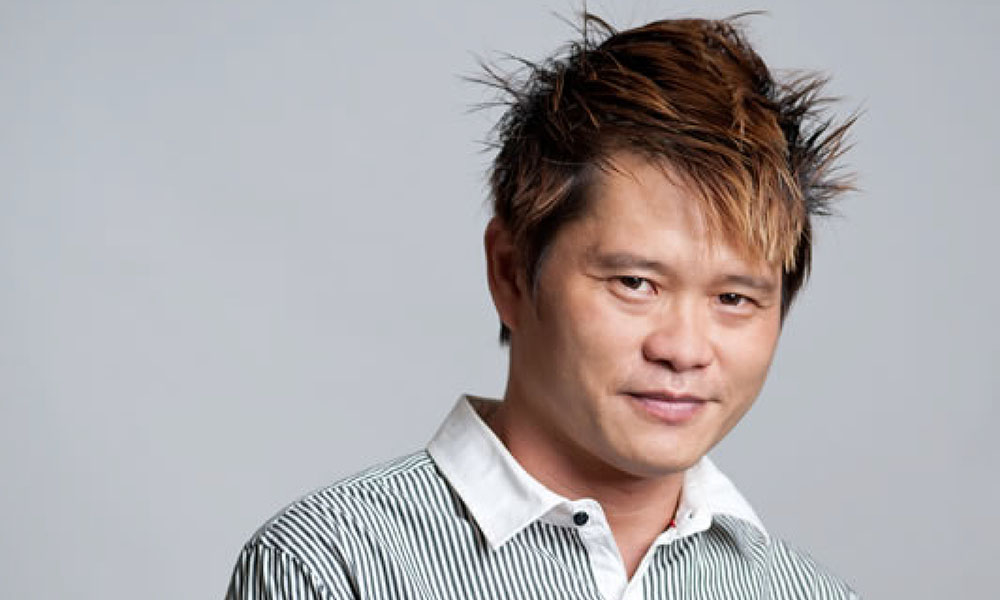By Jonathon Ang
In the previous article, we highlighted the massive changes sweeping through the world since the 1960s. Under the subtle influence of the mass media, traditional values are blithely eroded and replaced by modern liberal values that no longer champion the sanctity of marriage and family.
As healthy family units are key building blocks of any healthy society, the ever-escalating divorce rates and the breakdown of the traditional family structure threatens the very fabric of modern society. Youth delinquency and drug abuse in modern society are also on the rise given the absence of parental support and guidance.
Although the breakdown of traditional values in Singapore is nowhere comparable to that of Western societies, it is undeniable that Singapore is changing. For the better or worse, Singapore is trending towards a more liberal society due to the power of the mass media.
Crumbling pillars
The subsidence of traditional values did not happen overnight due to the decline of the traditional family unit. It is compounded by the dwindling of traditional religions and faiths; both are the key pillars supporting a moral and harmonious society.
Why are traditional religions like Buddhism and Christianity so important to our society?
Despite the difference in their forms, traditional religions have universally preached the essence of a moral and selfless lifestyle. Such teachings have profound effects for our society as they provide an objective yardstick on what is right or wrong by appealing to the goodness inherent in humanity. As time passes, the moralistic teachings of the prophets became ingrained into society and it gradually shaped our culture throughout the generations. This in turn, promoted a functional and harmonious society where everyone voluntarily restraint themselves from anti-social behaviours in pursuit of the greater good.
A society without morals is a society without a future. Just imagine what our society would be like when everyone does not find any terms of reference in morality. Chaos would set in and the society would have disintegrated on its own without this self-regulating mechanism.
Modern China could perhaps, provide a somber lesson on what can go wrong if traditional and religious values are thrown out of the window.

Throughout history, ancient China has been influenced by a mix of Buddhism, Taoism and Confucianism which are responsible for instilling a high level of morality in Chinese culture. Children are taught from young the importance of humility and filial piety and the cultural elites strive to emulate the ancient sages in their conduct. Chinese culture was respected and exported to neighbouring countries like Japan, Korea, and Vietnam.
However, all these were almost destroyed within a single generation during the Cultural Revolution in the 1960s to 1970s. Traditional religions were labelled as superstitions that cannot co-exist with the atheist nature of the communist ideology. Children were encouraged to denounce their parents and teachers all in the spirit of Maoism. Temples were desecrated and the cultural elites were persecuted. The enduring madness which destroyed traditional values created an amoral Chinese society which is driven by distrust, selfishness and greed.
The assault on traditional and religious values did not end with the cultural revolution. As religious matters were viewed with suspicions in stability-crazed China, Christians, Muslims, Tibetan buddhists and notably the Falun Gong, continued to face persecutions in China. Only a handful of state sanctioned religions are allowed to operate in China under the watchful eyes of the regime.
China is now facing a moral crisis caused by the decline of traditional and religious institutions. This explains why contemporary China is plagued social ills, such as public health scandals brought about by melamine contaminated baby milk formula or glow-in-the-dark pork. Morality had sunk to such alarming levels that profits are prioritised over public safety. Corruption has become a new norm and China is facing a tough battle to eradicate this social ill.
Despite anti-corruption efforts in his first five years in office, President Xi’s arrest of more than one million officials does not hit the core of the problem—the viral moral void created by the communist strain of fundamental ideological principles that went against traditional values. Judging from the decadence, it may take generations of hard work and effort before China can tide over this crisis.
Eroding faith

It is fortunate that Singapore is blessed with a tolerant society that supports religious freedom. However, Singaporeans are increasingly shunning the traditional religions. Nearly one in five Singaporeans did not identify themselves with any faith.
The erosion of faith in Singapore could partially be attributed to many of the scandals which have plagued the traditional religions.
In one of the longest running court trial in Singapore, six senior City Harvest Church leaders were convicted in 2015 for misappropriating nearly S$50 million from the church’s coffers. The money was supposedly used to fund the overseas pop music career of Sun Ho, who is the wife of Church Founder Kong Hee. This was further aggravated by the fact that the music videos of Sun Ho, which are considered raunchy by Asian standards, are nowhere near the baseline values of any mainstream religion, Christianity included. The trial created a backlash against the church and led to a decline of church membership.
This was not the first criminal conviction against a prominent religious figure in Singapore. Buddhist monk Shi Ming Yi, who was the former head of Ren Ci Hospital, was convicted in 2009 for falsifying accounts and misappropriating funds. The public goodwill earned by the monk for his big-time fund-raising efforts for the underprivileged was marred by the revelations that he lived an extravagant lifestyle that includes luxury cars and race horses.
Such convictions shocked Singapore as religious leaders are expected to uphold a higher level of morality. To be fair, the scandals involving religious leaders in Singapore pale in comparison to international scandals. Sexual abuse scandals and lawsuits involving the Catholic church in numerous countries has shaken confidence in this ancient institution. Meanwhile in China, abbot Shi Yongxin, who is better known as the CEO monk of the famous Shaolin temple, was accused of embezzling temple funds and fathering children with several mistresses. The list goes on.
Misconduct by religious leaders will directly result in the loss of public faith in the religion they represent. After all, the holy teachings will reek of hypocrisy if its leaders do not practise what it preaches. Faith and trust, once lost, are hard to be regained.
Science vs God

Other than such scandals, the traditional religions are competing against an unusual challenger: modern science.
The current and last centuries have ushered in scientific progress that is unimaginable to our ancestors. It is hard for our ancestors to believe that we had travelled to the stars and in the process of an artificial intelligence (AI) revolution that could make driverless cars a reality. The knowledge gained from such technological breakthrough has unwittingly become the favourite tool of non-believers and atheists to question the existence of an omnipotent creator.
Take the example of biologist Charles Darwin who disputed creationism with his theory of evolution by natural selection. According to Darwinism, humans are not created by higher beings but evolved from apes. This runs contrary to all traditional religions which have their own version of the origin of humanity. Although the theory of evolution has been constantly challenged for its lack of completeness, the theory is now accepted as truism by the scientific community.
Given the current rate of scientific progression, it is a matter of time before someone transgresses beyond scientific and ethical boundaries by cloning the first human. If this happens, the sacredness of religious belief would forever be shattered as it would suggest that man can now play god.
As it intrudes into domains which are previously exclusive to religion, modern science has evolved to become a new religion of its own. People are gradually turning away from traditional religions as they believe that everything in the universe can be explained by science. Placing their faith in modern science, people cannot help but think that there is no need to depend on an unseen omnipresent figure when humanity is able to have an answer to everything.
Perhaps, this could be the reason why Singaporeans are getting less religious; there is no need to worship a higher being unless a crisis beckons. In the era of smartphones, some would rather seek their answers from Google instead of getting their answers from the scriptures. Ironically, we may need a crisis to shake us out of our comfort zones before we seek solace in faith or religion.
To believe or not to believe
Judging from the thronging crowds at various temples and festivals, it appears that traditional religions in Singapore are in no danger of being snuffed out anytime soon. Despite the gradual erosion of faith, religion is deeply entrenched in modern society as it is deeply intertwined with our culture. Religious festivals like Christmas are celebrated by all Singaporeans regardless of their religious affiliations. Such is the beauty of a multi-cultural society.
Moreover, there is overwhelming evidence to suggest that people are healthier and happier if they identify themselves with a faith. Religion provides a sense of purpose to the individual and encourages positive contributions to society. Instead of focusing on all the scandals involving the traditional religions, let us all not forget the good work done by religious figures like Mother Theresa in the name of their faith.
Ultimately, it is up to the individual whether to believe or not. But I guess we should still continue to uphold the beliefs and values encouraged by the traditional religions. After all, it wouldn’t hurt to have more good people around anyway.
Continue to read: People and Society at A Crossroads – Part 3















